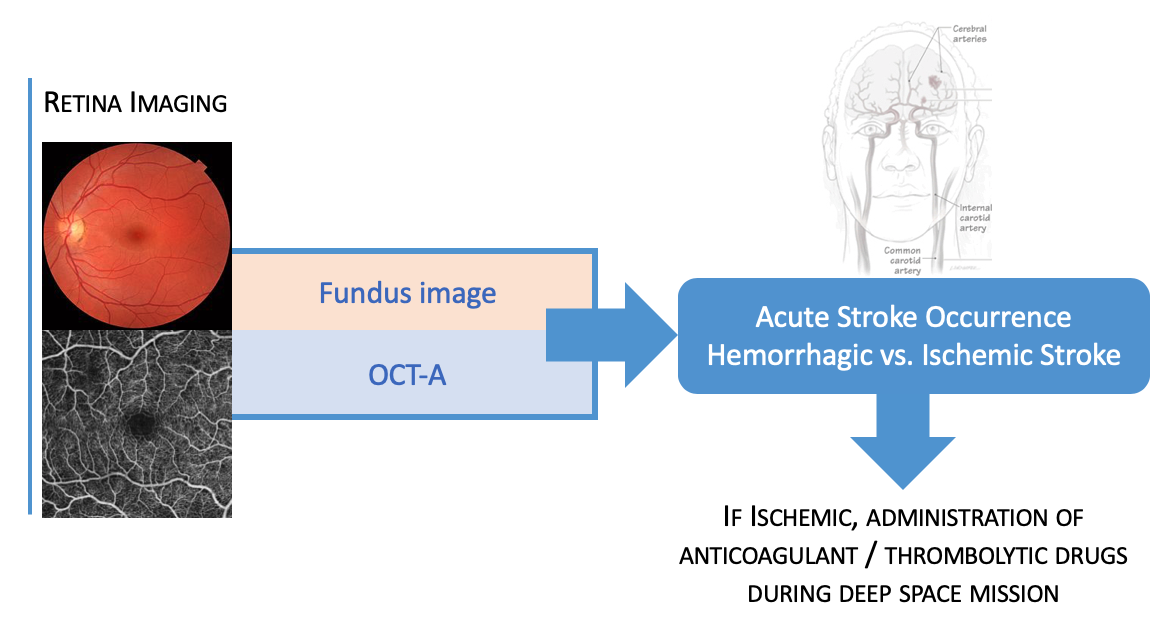An untreated stroke event would be destructive for a human deep space exploration mission. Increased cerebrovascular disease risk has been documented after prolonged exposures to ionizing radiations on Earth. Astronauts on deep space exploration missions will be exposed to galactic cosmic rays and solar particles for 30 months, which can lead to accelerated vascular injury likely increasing their risk of stroke.

On Earth, ischemic strokes can be successfully treated with anticoagulant or thrombolytic drugs if the event is rapidly diagnosed and the type of stroke (ischemic versus hemorrhagic) is rapidly identified with Computer Tomography (CT) or Magnetic Resonance Imaging (MRI) brain imaging. However, these brain imaging capabilities do not exist in space and alternative robust means of diagnosing and classifying stroke are needed. Due to the homology between retinal and cerebral vessels, and the ease with which retinal images can be acquired non-invasively, retinal images have been studied as a markers for cerebrovascular events. Retinal vascular abnormalities associated with incident stroke include arteriolar narrowing and reduced vessel fractal dimension. We propose to use a combination of color fundus photos and optical coherence tomography angiography (OCT-A) images to identify stroke events and stroke type, effectively acting as a proxy for brain imaging. These imaging modalities are non-invasive and deployable in currently existing technologies for deep space missions. We will adapt our automated interpretable image-based deep learning algorithm to identify stroke and stroke type from retinal vascular images, enabling an automated life-saving tool usable on a deep space exploration mission.
The research team is composed of: Luca Giancardo, PhD (PI), Sunil A. Sheth, MD, Amanda Jagolino and Charles Green, PhD (co-Is), UTHealth McGovern Medical School. Roomasa Channa, MD (co-I), University of Wisconsin. Rania Abdelkhaleq, Samiksha Pachade, Haaniya Dawoodally, Juntao Yan and Ivan Coronado (UTHealth). James Grotta, MD a vascular neurologist at the UTHealth McGovern Medical School and Sean Savitz, MD, the director of UTHealth Institute for Stroke and Cerebrovascular Disease will have an advisory role for data acquisition and interpretation.